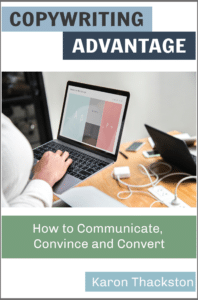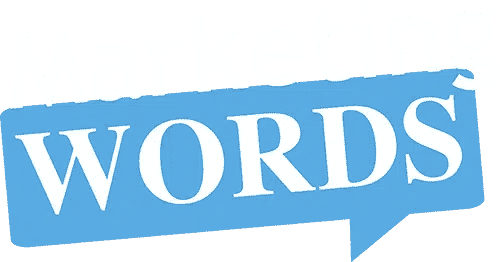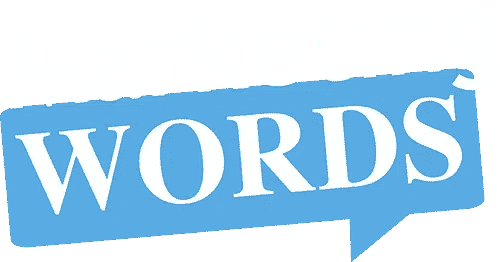 Whether Mark Harmon’s famous character on NCIS knows it or not, he gives sage advice about writing copy in almost every episode. His comments are an excellent reminder for anyone who writes sales messages to stay focused on your customer. Rather than flooding them with what you want to say, tell them what they want to hear.
Whether Mark Harmon’s famous character on NCIS knows it or not, he gives sage advice about writing copy in almost every episode. His comments are an excellent reminder for anyone who writes sales messages to stay focused on your customer. Rather than flooding them with what you want to say, tell them what they want to hear.
Gibbs constantly gets frustrated with Abby and McGee and all their uber-techy computer gobbledygook because he views it as fluff. The unnecessary details prevent Gibbs from solving the case: his primary goal. Your site visitors’ mission is to purchase products or services.
Without realizing it, businesses often hinder their prospects from getting to the end result they desire by writing copy that doesn’t deliver what the client wants.
Here’s a common scenario on the television show NCIS.
GIBBS: Whaddaya got, Abbs?
ABBY: Gibbs, Gibbs, Gibbs, Gibbs, Gibbs! You’ll never guess what Major Mass Spec found. Go ahead … guess.
GIBBS: Abby!
ABBY: Killjoy! OK, I’ll just tell you. It was a partial fingerprint, Gibbs! Want to know how I found it? I was thinking about the time I went fishing in New Orleans with my brother Luca and he accidentally stuck his finger with the fishing hook. It wasn’t a very bad stick, but he did bleed and we were afraid it was going to get infected so I…
GIBBS: Abby, is this going to help me solve the case?
ABBY: Oh, yes, Gibbs!
GIBBS: Then can you get to the point?
ABBY: Yes, Gibbs.
LESSON TO BE LEARNED: Abby loves running on at the mouth and telling stories. Gibbs, however, is the complete opposite: straight to the bottom line. If you force prospects to read a ton of copy that they don’t want to read, you’ll lose them before you get to the part that would likely convert them into buyers.
On the other hand, if you only give the bottom line, those people who require a good deal of detail in order to make a confident decision will click away for lack of information.
So, what about McGee? He doesn’t rattle off like Abby does, but he has a habit of using $10 words and technical explanations that go over people’s heads because he loves to show off his Johns Hopkins and MIT pedigree. Let’s listen in…
GIBBS: Update, McGee.
A Stronger Connection Means More Conversions
With this easy target audience discovery worksheet & video, you’ll have a handy tool that helps all your copy & marketing efforts hit the mark!

I understand that I will also receive weekly articles & videos plus periodic discounts, product notices & more. I can unsubscribe at any time.
 MCGEE: I isolated the node and dumped it on the other side of the router, but there was DOD-level encryption, which would take months to get through; then I’d have to create a mirrored hard drive to handle…
MCGEE: I isolated the node and dumped it on the other side of the router, but there was DOD-level encryption, which would take months to get through; then I’d have to create a mirrored hard drive to handle…
GIBBS: Ah, geez, McGee. In English.
MCGEE: Sorry, Boss. I was trying to follow the money trail, but it was bouncing all over the world and…
GIBBS: MCGEE! What does this mean to me? Get to the point!
LESSON TO BE LEARNED: Don’t use jargon unless your target customers work within your industry.
One example I can offer is a business that manufactured portable alarm systems for outdoor gas pipelines. The copy in their current brochure was filled with technical terms and industry-speak that would have been familiar only to those who created such systems. The customers who were buying them, however, had no clue what the correct parts-per-million level for a particular gas should be. They just needed to know that — if unsafe limits were exceeded — someone would be alerted in time to evacuate employees.
Explaining processes that you’re proud of (but that would completely go over the heads of your clients) is a waste of time and could be costing you sales. If, however, the procedure or feature makes a difference to the customer in his/her buying decision, find a way to dumb it down so that even Gibbs could understand the relevance.
How Do You Accommodate Everyone?
When possible, break up your copy. Provide bullet points (test whether feature, benefit, or a combination work best for your audience) as well as longer text (with informative sub-headlines) that gets increasingly detailed. That way, if you get a Gibbs, who only wants the down-and-dirty information, he can get it quickly. If you get an Abby — who wants everything you’ve got so she can feel knowledgeable about your products and services and close to your brand — she’s covered. McGee can easily scan to find exactly which parts he wants and needs.
You may want to create target market profiles (also called personas) as well as storytelling to give your copy a more personal and relatable touch.
Once you get to know your customers (and all their various segments) and get to understand them, you’ll discover a far more effective way to communicate with them via copywriting. And that always leads to more sales!

Want to understand your target audience better so your copy becomes more persuasive? Without this, all your other marketing efforts will suffer. Learning to write copy to your specific target group isn’t as hard as you think and doesn’t require a ton of spammy language… IF you choose the right copywriting course.
Get access today to Copywriting Advantage: How to Communicate, Convince & Convert and see how quickly you can flip your under-performing pages into profit mode!
Save 25% now with code COPYADV for a limited time.



Love it Karon! Like many, I’m a huge NCIS fan. Oh and I am all about details so I’m definitely an Abby. My husband says I am a salesperson’s worst nightmare LOL
Thanks for the tips!
Glennette
Glad you liked it!
Hi Karon,
How did you know NCIS is my number one favorite TV show. I’m like Gibbs. When see a long sales page for some product, I’ll go to the end to see how much it costs, and then go back to see the bullet points. The rest is often just fluff. If I want more info then I’ll read the fluff.
Yep… lots of people do that same thing.
These 2 NCIS posts were spot on. Maybe we need to have a popup on our pages right at the beginning asking Are you a Gibbs, DiNozzo, McGee or Abby? Then it would direct them to a product page custom tailored to their “speak”.
Actually, many sites take the approach of targeting segments of their audience on the home page. It’s not always related to communication style (like this blog post talks about). The http://www.MarketingWords.com home page does this. If you look toward the bottom, you’ll see we target those who want done-for-you services, done-with-you services and do-it-yourself options.